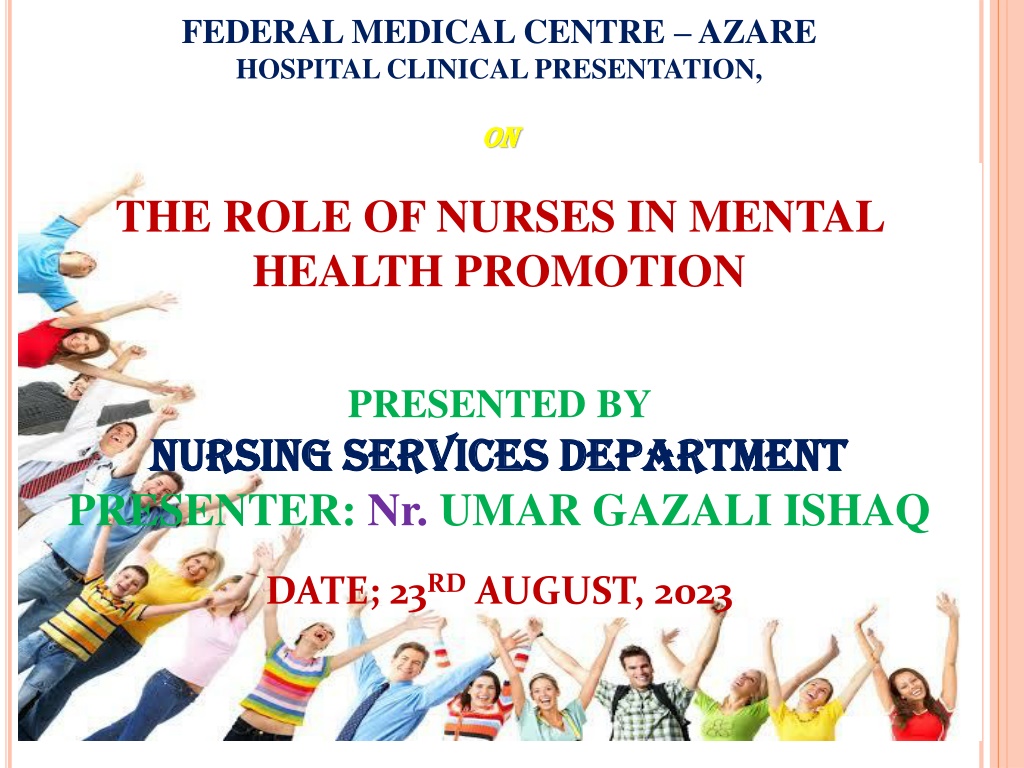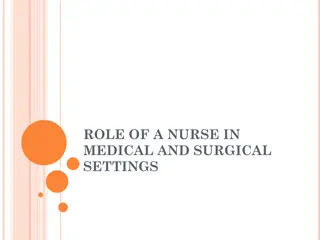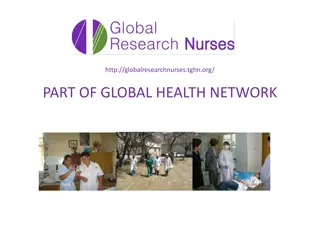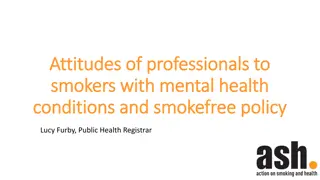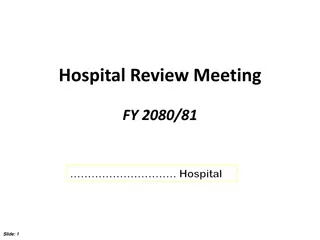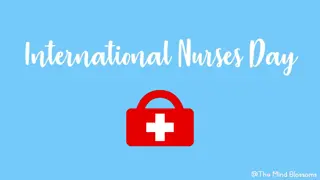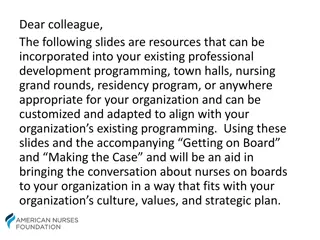Understanding Mental Health Promotion: Role of Nurses at Federal Medical Centre Azare Hospital
Mental health promotion is crucial for overall well-being, encompassing the balance of life aspects. Nurses play a significant role in promoting mental health by adapting to stressors and societal norms. The presentation highlights strategies, challenges, and recommendations, emphasizing the importance of mental health beyond the absence of illness.
Download Presentation

Please find below an Image/Link to download the presentation.
The content on the website is provided AS IS for your information and personal use only. It may not be sold, licensed, or shared on other websites without obtaining consent from the author. Download presentation by click this link. If you encounter any issues during the download, it is possible that the publisher has removed the file from their server.
E N D
Presentation Transcript
FEDERAL MEDICAL CENTRE AZARE HOSPITAL CLINICAL PRESENTATION, ON ON THE ROLE OF NURSES IN MENTAL HEALTH PROMOTION PRESENTED BY NURSING SERVICES DEPARTMENT NURSING SERVICES DEPARTMENT PRESENTER: Nr. UMAR GAZALI ISHAQ DATE; 23RD AUGUST, 2023
OUTLINEOFCONTENTS Introduction Overview of Mental health & Illness Strategies to Promote Mental Health Role of the Nurses in promoting mental health Challenges Recommendations Summary Conclusion References
Mental health is far more than the absence of mental illness. It s the successful balance between all aspects of life. It s the foundation for well-being and effective functioning.Mental health problems are not regarded as life threatening issues.
DEFINITIONOFMENTALHEALTH . Mental health is the successful adaptation to internal and external stressors as evidenced by thought, behavior, emotion and personality that are congruent with the societal norms, values and age appropriate (Mary Townsend, 2012).
DEFINATION. WHO (2010) defined mental health as state of mental wellbeing that enables people to cope with the stresses of life, realize their abilities, learn well and work well and contribute to their community.
DEFINITIONOFMENTALILLNESS Mental Illness is the mal-adaptation to internal and external stressors as evidenced by thought, behavior, emotion and personality that are incongruent with the societal norms, values and age appropriate (Mary Townsend, 2012).
EPIDEMIOLOGY/PREVALENCEOFMENTALILLNESS Developed countries (USA, UK. etc.) ; 5 25% Developing countries (Nigeria, etc); 75 95% {WFMH, 2021} Suicide occur every 40 seconds in the world 1:6 (10-19)yrs suffer mental health issues 1:4 Nigerian suffer mental health issues
FMC AZARE STATISTICS, 2022 S/N MONTH No. of Patients DEPRESSION 15 1 JANUARY 125 SOMATIC ILLNESS SEIZURE DISORDER SUBSTANCE USE DISORDER OTHERS 35 2 FEBRUARY 137 15 3 MARCH 135 4 APRIL 137 5 MAY 117 5 25 5 6 JUNE 120 SCHIZOPHRENIA 7 JULY 150 8 AUGUST 126 9 SEPTEMBER 179 10 OCTOBER 141 MALE: 30% (504) FEMALE: 70% (1176) 11 NOVEMBER 144 12 DECEMBER 172 TOTAL 1680
s A. Predisposing factors : Heredity, Constitutional factors. B. Precipitating factors: Physical & Psychological factors.
SIGNS OF GOOD MENTAL HEALTH/ ILLNESS SIGNS OF GOOD MENTAL HEALTH Positive self concepts. Adaptive functioning.
SIGNS OF POOR MENTAL HEALTH Impaired self concept Mal-adaptive functioning
STRATEGIESTO PROMOTE MENTAL HEALTH Stress Management. 1. Assertive communication. 2. Anger management. 3. Work-life balance. 4. Positive thinking. 5. Social support. 6. Spirituality. 7.
ROLEOFNURSESINMENTALHEALTHPROMOTION Data collection. Interviewing, behavioral observation, physical and mental health assessment. Plan appropriate interventions with the client.
NURSES ROLE. DIAGNOSIS The nurse utilizes nursing diagnosis and/or standard classification of mental disorders. Nursing logic basis for providing care rests on the recognition. identification of those actual or potential health problems.
NURSES ROLE. The nurse develops a nursing care plan. The nursing care plan is used to guide therapeutic interventions.
NURSES ROLE.. Psychotherapeutic interventions Health teaching Activities of daily living Somatic therapies Therapeutic environment
NURSES ROLE. The nurse evaluates client responses to nursing actions Revise the database, nursing diagnosis and nursing care plan.
NURSES ROLE Cont. Interdisciplinary Collaboration Thenursecollaborateswithotherhealth care providersinNursing processandothermentalhealthactivities.
NURSES ROLE..... CONT. Utilization of Community Health Systems The nurse participates with community members in nursing process promotion of the brand continuum of primary, secondary and tertiary prevention of mental illness.
Limited manpower. 1. Lack of dedicated unit and other infrastructures. 2. High level of stigma/discrimination. 3. Limited awareness on mental health/psychiatry services. 4.
Urgent need for mental health/psychiatric professionals. 1. Urgent need for dedicated mental health psychiatric unit. 2. Ensuring community awareness on mental health services. 3. Training and retraining of staff. 4.
Promoting mental health is major concern in the prevention and control of major NCDs. Between 75-95% of people with mental disorders do not have access to mental health services and thus, live in low and middle- income countries. Suicide occur every 40 seconds globally. 1:6 of adolescence aged 16-19 yrs suffer mental health issues . 1:4 Nigerians suffer mental health issues.
Mental health promotion is a basic necessity for fruitful and healthy living. Mental health is a total health.
Baker P. (2009): Psychiatric And Mental Health Nursing; The Craft Of Caring. 2nd Edition Edward Arnold Publishers Ltd, UK Tasman A., Kay J., (2006) Essentials Of Psychiatry, 2nd Edition, John Wiley& Sons, Ltd USA WHO, 2022 Mental Health: Strengthening Mental Health Promotion. Fact Sheet No. 220.WHO, Geneva. Retrieved From: Http://Www.Who.Int//Mediacentre/Factsheet WHO, (2015) Prompting Mental Health: Concepts, Emerging Evidence And Practice, WHO Geneva.
